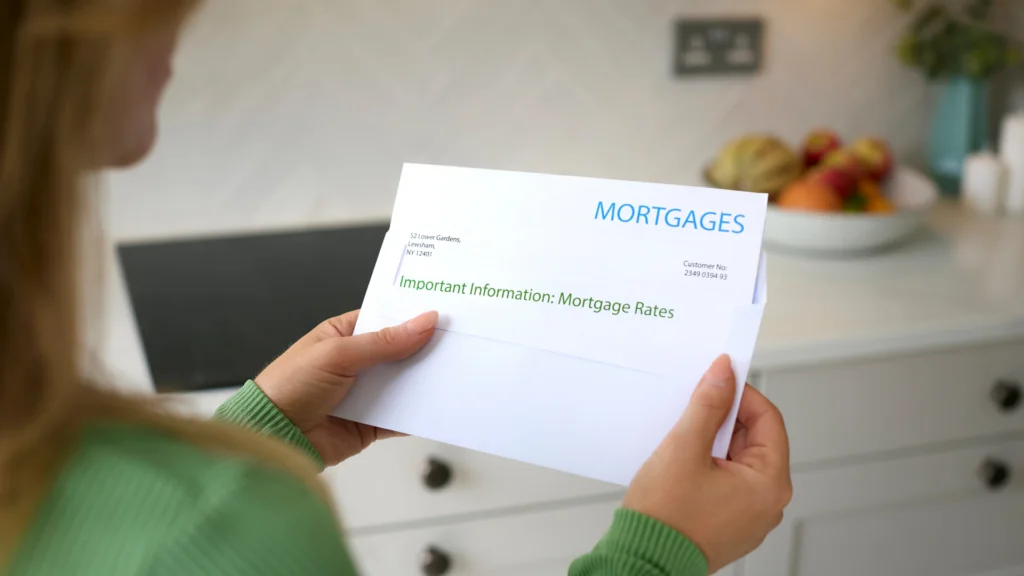What You Should Know About Interest-Only Offset Mortgages

Have you ever wondered if there’s a way to use your savings more effectively when buying a home?
With an interest-only offset mortgage, you can do just that. This type of mortgage lets you offset your savings against your mortgage balance, reducing the interest you pay each month.
It’s a smart way to make your money work harder for you, all while keeping your options open.
Curious to know more? Let’s break it down.
What’s an Interest-Only Offset Mortgage?
As we’ve discussed, interest-only offset mortgages is a type of mortgage that means you’re only paying the interest on your loan each month, not the actual amount you borrowed (the principal).
The ‘offset’ part comes in when you have savings that can be linked to the mortgage.
Instead of earning interest in your savings account, the money is used to reduce the amount of mortgage interest you pay.
Let’s break it down a bit more.
Say you’ve got a £200,000 mortgage and £50,000 tucked away in a savings account. Instead of paying interest on the full £200,000, you’ll only pay it on £150,000.
This can reduce your monthly payments, giving you a bit more breathing room each month.
At the end of the mortgage term, you still need to pay off the original £200,000, so it’s essential to have a repayment plan ready.
Why Consider an Interest-Only Offset Mortgage?
An interest-only offset mortgage can be a clever choice in several scenarios:
- Expecting a Windfall. Got a big bonus, inheritance, or maturing investment coming your way? This mortgage keeps your savings handy and reduces your interest payments while you wait for that lump sum to clear the principal.
- Irregular Income. If you’re self-employed or your income fluctuates, you can keep your savings flexible to cover quiet months while reducing your mortgage costs.
- High-Earning Professionals. For those with annual bonuses or commissions, your savings work to lower your monthly interest, and those big payments can be used to chip away at the mortgage principal.
- Parents Saving for Kids. Planning to help your children later on? This setup lets your savings lower your interest now, without locking them away when you need them.
- Multiple Properties. If you’re planning to sell a property to pay off your mortgage, you can keep your interest costs low until that sale goes through.
In short, it’s all about flexibility—keeping your savings accessible while cutting down your monthly payments. Just have a solid plan for paying off the loan at the end.
Who Is Eligible?
Before you dive in, let’s see if you tick the right boxes. Here’s what lenders usually look for:
Repayment Strategy
Lenders want to be sure you can repay the loan when the term ends, so having a solid exit strategy is essential.
Here are some options they usually accept:
- Selling a Property. If you have another property, you could plan to sell it and use the proceeds to pay off your mortgage. This is common for landlords or those with a second home.
- Investments. Cashing in investments like stocks, shares, or ISAs is another way to cover the final payment. Just make sure these are robust and will mature at the right time.
- Endowment Policies. If you have an endowment policy that’s due to mature at the end of your mortgage term, you can use it to repay the loan.
- Pension Lump Sum. Planning to dip into your pension pot when you retire? Using a lump sum from your pension can be a viable strategy, but bear in mind the timing and any tax implications.
- Annual Bonuses or Windfalls. If you regularly receive large bonuses or are expecting a financial windfall (lucky you!), these can also be used to clear the debt.
Income Requirements
Most lenders will want to see that you’re earning a good income.
The minimum income requirement can vary widely depending on the lender and your repayment strategy. For example:
- For Sale of a Property – Some lenders, like Scottish Widows, may require a minimum annual income of £100,000.
- General Income Levels – Other lenders may have lower thresholds, ranging from £40,000 to £50,000. The key is to demonstrate a stable and sufficient income to support the mortgage and any other financial commitments you have.
- Multiple Income Streams – If your income is a mix of salary, bonuses, or self-employed earnings, be prepared to show how it all adds up. Lenders like to see the full picture.
Property Type
Most interest-only offset mortgages are designed for second homes, buy-to-let properties, or even holiday lets.
Using one for your main residence is a bit like trying to use a sledgehammer to crack a nut – not quite the right tool.
However, some lenders might consider it if you can meet all the other criteria and have a solid repayment plan in place.
The key here is to be clear about the type of property you’re buying and its intended use.
Deposit Size
This is where things get serious. Interest-only offset mortgages are considered higher risk, so lenders will want you to have a hefty deposit.
Typically, you’ll need:
- 25% or More – Most lenders require at least a 25% deposit of the property’s value. This reduces their risk and shows you’re committed.
- Larger Deposits for Better Deals – If you can put down more, say 30% or even 40%, you might get access to more competitive rates.
Credit History
Your credit history plays a big role in your eligibility. While a few late payments in the past might not be a deal-breaker, anything more serious like a recent bankruptcy or county court judgements (CCJs) could make things tricky.
But a specialist broker might be able to find a lender willing to look past them, especially if you have a solid repayment plan and a big deposit.
Age Limits
Most lenders have upper age limits for this type of mortgage. Generally, the mortgage term should end before you reach a certain age, often around 75.
This is because they want to be sure you’re in a position to repay the loan before you hit retirement and your income potentially drops.
Employment Status
Full-time employment is the most straightforward, but self-employed individuals can still qualify.
You’ll just need to provide more evidence of your income, like two to three years’ worth of accounts or tax returns.
- Self-Employed or Freelancers: Be ready to prove consistent earnings over several years. Lenders need to be convinced your income is stable and sufficient.
- Contract Workers: You might need to show a history of contracts and evidence of future work.
Lender-Specific Criteria
Some lenders have their own specific rules, like restrictions on the type of property you can buy (e.g., no non-standard construction) or additional checks if the property is outside the UK.
It’s all about understanding what your chosen lender wants to see.
How To Get an Interest-Only Offset Mortgage?
If you’re seriously considering an interest-only offset mortgage, here’s a game plan:
- Consult a Specialist Broker. Start by speaking to a broker who understands this niche mortgage type. They’ll assess your financial situation, explain the ins and outs of interest-only offset mortgages, and help you find lenders that suit your needs.
- Review Your Repayment Plan. Make sure you have a clear strategy for repaying the loan at the end of the term. It’s crucial to avoid nasty surprises down the road.
- Check Your Finances. Ensure your income and savings meet the lender’s criteria. Remember, having a solid financial foundation will increase your chances of approval.
- Compare Your Options. Look at different lenders, interest rates, and terms. Don’t just go for the first offer – you might find a better deal with a bit of research.
The Pros and Cons of Interest Only Offset Mortgages
Here’s a quick look at the pros and cons to help you decide if it’s the right choice for you.
Pros:
- Lower monthly payments since you’re only paying the interest.
- Your savings reduce the mortgage interest, while still remaining accessible.
- No tax on savings interest, which is beneficial for those with large balances.
- Potential to save overall if your mortgage rate is higher than the interest rate on savings.
- Flexibility to use savings for unexpected expenses or other investments.
Cons:
- Higher interest rates compared to standard mortgages.
- Savings don’t earn interest, so they could lose value over time due to inflation.
- Requires a solid plan to repay the full loan amount at the end of the term.
- Fewer lenders offer this type of mortgage, limiting your options.
Is This Mortgage Right for Me?
Good question! It depends on your circumstances.
If you’ve got a chunk of savings that you don’t want to use for a deposit and are comfortable with a bit of financial juggling, it could be a good fit.
But if you prefer straightforward finances and want to chip away at your mortgage principal, a traditional repayment mortgage might suit you better.
Key Takeaways
- An interest-only offset mortgage means you only pay interest each month. To lower your payments, your savings are linked to the mortgage, reducing the amount you pay interest on. This is different from a standard mortgage where you pay both interest and principal.
- These mortgages are harder to find because they have higher interest rates and fewer lenders offer them.
The Bottom Line
Choosing a mortgage is a big deal. It’s not just about finding a way to pay for your home; it’s about making sure the payments fit into your lifestyle comfortably.
An interest-only offset mortgage can offer flexibility and lower monthly payments, but it requires careful planning.
If you’re considering this type of mortgage, it’s best to speak with a broker who specialises in these products. They can help you figure out if it’s the right fit and guide you through the application process.
Looking for the right broker? Get in touch with us. We’ll connect you with a reliable broker who can help you solve your specific mortgage situation.
Get Matched With Your Dream Mortgage Advisor...

Frequently asked questions
Can I remortgage an interest-only offset mortgage?
Yes, you can. It’s worth speaking to a broker to explore your options and find a better deal, if available.
Can I get one with bad credit?
It depends on the severity of your credit issues. Some lenders might still consider your application, especially if the problems were minor or happened a while ago.
What’s the minimum deposit?
Typically, you’ll need at least 25% of the property’s value as a deposit, but some lenders might require more, depending on your situation.
Is this type of mortgage available for buy-to-let properties?
Yes, it is. It can be a great way to manage your finances for a rental property, but make sure you have a solid plan for repaying the loan.
Can I use it for a second home?
Absolutely, but you’ll need to meet all the eligibility requirements, including having a secure repayment strategy and meeting the lender’s affordability criteria.




